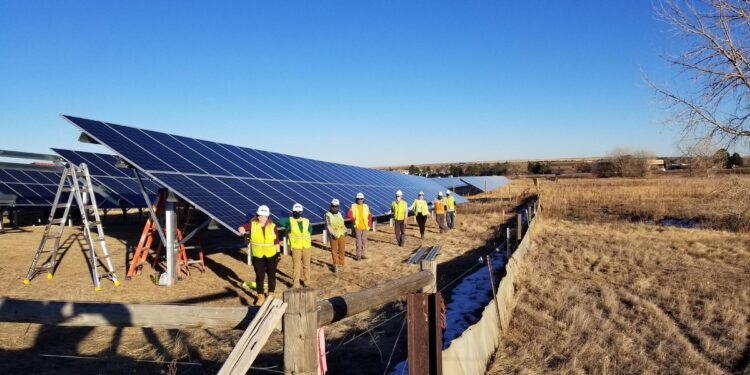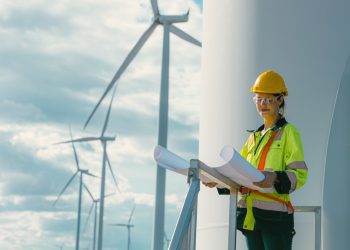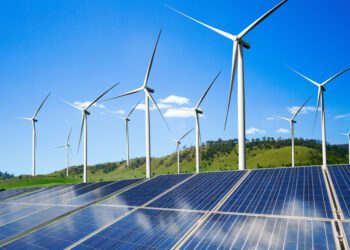Amid growing global energy demand and rising carbon dioxide emissions, majorities of Americans say the United States should prioritize the development of renewable energy sources, such as wind and solar, and take steps toward the country becoming carbon neutral by the year 2050.
Still, Americans stop short of backing a complete break with fossil fuels and many foresee unexpected problems in a major transition to renewable energy. Economic concerns are also front of mind for many when asked to think about what a transition away from fossil fuels could mean for their own lives.
The new Pew Research Center survey of 10,237 U.S. adults conducted from Jan. 24 to 30, 2022, finds that 69% of U.S. adults prioritize developing alternative energy sources, such as wind and solar, over expanding the production of oil, coal and natural gas. The same share (69%) favors the U.S. taking steps to become carbon neutral by 2050, a key component of President Joe Biden’s climate and energy policy agenda.
A relatively small share of Americans (31%) believe the U.S. should phase out the use of oil, coal and natural gas completely; far more (67%) say the country should use a mix of fossil fuel and renewable energy sources. Officials are considering ways to remove carbon emissions from the atmosphere through tree plantings as well as carbon capture and storage techniques.
The survey was conducted prior to escalating tensions and Russia’s invasion of Ukraine that have driven increased uncertainty in global energy markets.
Chart shows both party coalitions have internal differences over energy policy
Partisan affiliation remains the dominant divide in views of climate and energy issues, with Republicans and Democrats staking out competing visions for the country’s energy future.
On balance, Republicans and Republican-leaning independents give greater priority to expanding the production of oil, coal and natural gas than to developing alternative energy sources, and they overwhelmingly believe that fossil fuels should remain a part of the energy picture in the U.S.
Among Democrats and Democratic leaners, very large majorities support prioritizing the development of alternative energy sources and favor the U.S. taking steps to become carbon neutral by 2050.
Still, energy issues surface fault lines within both partisan coalitions.
Within the GOP:
- There is internal disagreement around the goal of the U.S. becoming carbon neutral: 66% of self-described moderate and liberal Republicans favor taking steps toward this, while 64% of conservative Republicans oppose this.
- There is a similar divide by political ideology over the country’s more important energy priority: 64% of moderate and liberal Republicans say it should be developing alternative sources such as wind and solar, whereas 67% of conservative Republicans say it should be expanding production of oil, coal and natural gas.
Among Democrats and independents who lean toward the Democratic Party:
- There is a split over whether the U.S. should phase out the use of oil, coal and natural gas completely (49% of Democrats say this) or use a mix of energy sources, including fossil fuels along with renewable sources (50%).
- This overall divide reflects competing views within the Democratic Party: 63% of liberal Democrats say the U.S. should phase out the use of fossil fuels completely, while a majority of moderate and conservative Democrats (61%) say it should use a mix of energy sources.
(Courtesy Pew Research Center)












